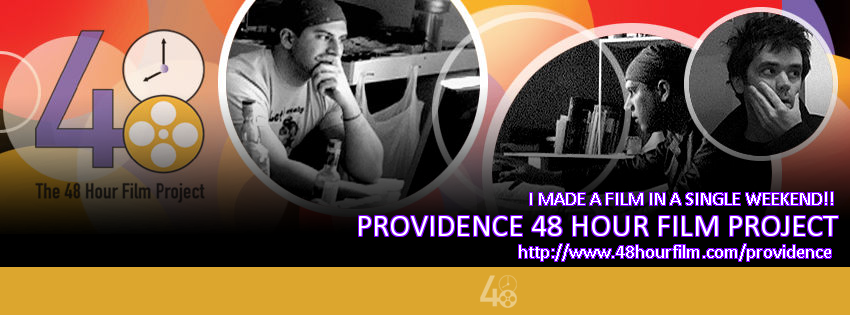Winning a 48 Hour Film Project
Lessons learned from winning a 48 hour film project
My team, Shoot the Moon Films, won the 2014 Providence Horror Film Project’s “Best Picture” award, as well as scoring a “Best Actor” award for Nicholas Magrey, a “Best Writing” award for Natasha Darius and Nicholas Magrey, and a “Best Sound Design” award for Aaron Theodore Berton for our short film “The Carving” (IMDb).
I’m used to doing post-mortem analyses on failures, so this is a fairly unusual task ; why did “The Carving” win against other films – especially against some very strong contenders?
It’s all about the story.
As usual, we didn’t base our story off of any pre-existing concepts, scripts, etc. Although it is expressly forbidden in the rules of the 48 hour film projects, it is common knowledge that many teams engage in this practice, presumably because of the difficulty of producing a good screenplay in the alloted time.
I’m always proud of our writers, and this was no exception. When you’re writing a story which has to come out as a four to seven minute short, you can’t write an over-complicated concept, or take a half hour concept and cut it down to a few minutes of film. We had used a fairly complicated concept for our last 48 hour effort, Desire, and it did not fare very well.
It helps to have writers who know basic tenets of writing, and there are a ton of online courses, books, and general help to improve scripts. Without the screenwriters, we would not have won.
Sound is important, too.
We spend an inordinate amount of post production time on ADR-ing, Foley-ing, and otherwise enjoying the hard work of our sound engineer, which resulted in the best sounding audio track of any of the films in the festival. (Don’t take my word for it – it won an award specifically for that.)
Your boom operator has to be paying attention, and your audio setup has to be… something. Don’t rely on a single source of audio, either. We had an issue with a cable which resulted in having to use on-camera audio for a closeup shot. This wouldn’t have been possible without a backup.
(It’s worth noting that in editing, I ended up doing as much audio replacement as I could before handing off to our sound engineer, to cut down on the amount of time which he’d have to burn finding the nicest audio for a certain take.)
Take (footage of) only what you need to survive.
Overly fancy cinematography, while fun to execute (and great for winning Cinematography awards), is nothing if it doesn’t help propel your story forward. If you’re trying desperately to find a way to put a quadcopter shot into your film, you may have lost already.
I’m a huge fan of indulgent, long, complicated shots – but they have to fit your idiom. If you’re making a four to seven minute long short, you probably shouldn’t do things just for the sake of doing them. A quick example was that I had originally planned a jib/crane shot for a particular piece of exposition, but ended up going with a snorricam rigged shot instead. The snorricam doesn’t add as much “value” to the end product, but it told the story better.
On the other hand, think about your video quality a bit.
If you’re shooting on a handicam, why? Entry level DSLRs are cheap and easy to come by, and with the right set of eyes behind the camera, they can produce great footage.
If you’re not color correcting or grading your footage, why? The walls behind your characters shouldn’t be changing between shots unless you intend for them to be doing so. White balancing doesn’t cost any money.
If you’re not lighting your footage, why? A guy with a decent eye and a few clamp lights can add immeasurable depth and character to your shots. I know that “low light cinematography” is making the rounds as the new fad, but you’re not going to get the same type of picture. It doesn’t cost much (or anything if you already have the equipment at home), so what’s the harm?
If you can’t do something, find someone who can.
Unless you’re a one person shop, consider finding other people to handle tasks – especially if they’re better at something than you are. Get someone with a good eye to handle the cinematography, someone who can write well to pen your piece, and people who are good with audio to handle your post production.
Don’t try to win, try to put out the best film you can.
This is advice I had received right before the 48 started, and it’s some of the best I’ve had. Because we specifically tried to make the best film we could make in 48 hours (within the constraints outlined by the 48), we have a film for our own promotion and uses after the festival ended.
Good luck to you in all of your cinematographic adventures!
